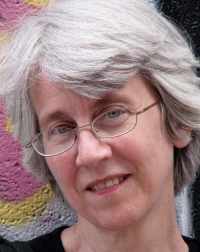 NBCC member Barbara Fister responds to the third question in our “Next Decade in Book Culture” series:
NBCC member Barbara Fister responds to the third question in our “Next Decade in Book Culture” series:
My answer to this question is a bit odd. My genre is crime fiction, and I read (and review) a lot of it. But within a genre that, to outsiders, seems formulaic—people get murdered, killers get caught—there is a huge variety, and for any one reader, it’s a challenge to discover the gems.
Once upon a time I would scribble lists of books to try based on reviews by Marilyn Stasio, who reviews a handful of mysteries for the New York Times Book Review every other week, but I quickly learned she’s either more catholic in her tastes or less picky; while her brief reviews were helpful, the books she approved of hit the spot less than half the time.
There are lots of mysteries published every year, and when Publishers Weekly and Library Journal cross my desk in the library where I work, I see whole constellations of stars, but those stars don’t align with my tastes. That perfect mix of vivid setting, excellent prose, and realistic characters who (as Chandler said) commit murder for a reason, is a tall order. And though the “big books” of the season get reviewed–over and over again–in newspapers and magazines, it’s harder to find serious reviews of crime fiction that are more than plot synopses in most mainstream media.
I found my fix in a reading group. Not your typical reading group, but one that has over a thousand members worldwide and lives on the Internet. It’s devoted to discovering and discussion mysteries, and it’s appropriately named “4MA” –for mystery addicts. One of its best qualities is that it’s a promotion-free zone. Authors may join, but they aren’t allowed to talk about their writing, and those who join to cross-promote friends’ books get the cold shoulder. Members vote on two books to read together every month, with a volunteer discussion leader, and at the end of the month people sum up what they’ve been reading and what they thought of it. These lists are a goldmine.
People tend to find their “reading twins” –readers who share similar tastes–and build their list of books to read based on their reviews. Social networking sites like LibraryThing and GoodReads fill a similar niche, but they are not as effective as 4MA at emptying one’s bank account and stuffing one’s shelves. At 4MA readers know the genre and read far beyond the bestseller list. They can explain what made a book work for them, and how it compares to other mysteries. I’ve also found myself moved by the place of reading in people’s lives. One member from Argentina told of her widowed grandmother emigrating years ago from Spain with two small children and a trunk full of books; another wrote that both her mother and grandmother read in secret because it was considered self-indulgent when there was work to be done.
I follow a number of blogs that review mysteries, and websites such as EuroCrime, Stop, You’re Killing Me, and Reviewing the Evidence are essential sources for mystery addicts. (Full disclosure: I contribute to Reviewing the Evidence.) But the word-of-mouth magic that publishers would kill for is alive and well at 4MA, where sharing reading experiences is an everyday practice.


